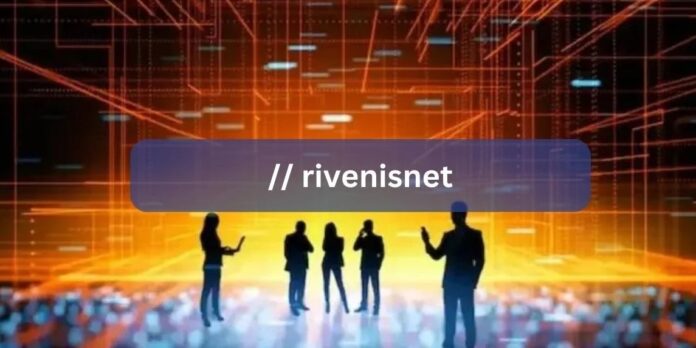The internet has developed into more than just a basic means of communication; it is now a vital component of contemporary life and the foundation of worldwide connectivity. New digital ecosystems and platforms have surfaced in recent years, aiming to expand the possibilities for online communication, sharing, and collaboration. One such platform is called Rivenisnet, which is becoming more well-known for its cutting-edge strategy for digital connectivity. Though it is still in its infancy, Rivenisnet is a leading example of the future generation of web platforms that combine user-generated content, data exchange, and communication into a single dynamic structure. This article examines Rivenisnet’s features, possible effects, and wider ramifications for online communities and digital networking in the future.
Table of Contents
The Evolution of Digital Platforms and Connectivity
For more than ten years, Facebook, Twitter, and Instagram have dominated the social media scene in the digital age. The way people communicate, exchange stories, and build communities has been altered by these platforms. But as worries about data security, privacy, and corporate control have grown, so has the need for substitute platforms that put the needs of users first in networking. Here’s when Rivenisnet becomes useful.
As part of a new generation of platforms, Rivenisnet aims to go beyond conventional social media by emphasizing user experience and encouraging a decentralized method of online communication. With more control over their data and content, users will have more flexibility in how they engage and connect with others in the digital ecosystem that the platform aims to establish. An alternative to the big, centralized servers of traditional platforms—which are frequently attacked for their monopolistic tactics and their use of user data for financial gain—is offered by Rivenisnet, which decentralizes data delivery and storage.
The Core Features of Rivenisnet
Fundamentally, Rivenisnet is intended to be an open, welcoming platform that places an emphasis on user liberty, connectivity, and teamwork. Rivenisnet provides a more open method in contrast to popular social media sites, which are fueled by algorithms that frequently distort user participation. Users have the ability to personalize their interactions and manage the sharing, viewing, and interaction of their content.
Rivenisnet’s emphasis on community-driven content is one of its most distinctive aspects. Users are encouraged by the platform to create and join groups where they can interact with others, discuss topics, and share hobbies. This focus on the community instead of the frequently surface-level interactions observed on larger platforms encourages a more personal and meaningful form of involvement. Furthermore, content is not controlled by a single organization thanks to Rivenisnet’s usage of decentralized servers, which gives people more control over their online personas.
Additionally, the platform emphasizes security and privacy heavily. In a time when big IT companies routinely gather and sell personal data, Rivenisnet provides end-to-end encryption for all data storage and communications. By doing this, users may be guaranteed that their shared content and private chats are safe from outside exploitation or monitoring. Given how frequently data breaches occur in the digital sphere, the platform’s dedication to privacy is a key selling factor for users looking for more control over their online presence.
Decentralization and User Empowerment
Decentralization of data and control is a fundamental tenet of Rivenisnet, and it has been increasingly popular in recent years as a result of the emergence of peer-to-peer networks and blockchain technology. Conventional platforms are dependent on centralized servers, which house enormous volumes of customer data in one place. This strategy has drawn criticism for providing companies an excessive amount of power because it gives them the ability to manage and profit from user data. Centralized systems are also susceptible to data breaches, hacking, and censorship.
Utilizing decentralized servers, which prevent any one party from controlling the network as a whole, Rivenisnet adopts an alternative strategy. Rather, numerous nodes hold user data, offering increased security and privacy. Additionally, by preventing a single point of failure, this decentralization makes it more difficult for hackers to penetrate the system. Because they are no longer at the mercy of a corporate algorithm or a centralized authority, users benefit from increased independence and control over their data and interactions.
Additionally, community governance—which gives users a voice in platform management—is made possible by decentralization. Users can vote on modifications, suggest new features, and determine the platform’s direction on Rivenisnet, in contrast to typical platforms where choices are decided by a limited number of executives or engineers. As a result of the democratization of digital environments, users are empowered and given a sense of ownership, which promotes deeper engagement and teamwork.
The Future of Online Communities
A larger trend toward decentralized digital ecosystems includes Rivenisnet. Alternative social media sites, like Rivenisnet, provide a window into the direction of online communication as users grow more conscious of the drawbacks and dangers associated with established social media platforms. Peer-to-peer networks and other decentralized technologies are becoming more and more popular, which indicates a change in how people view digital spaces and their place in them.
Even though Rivenisnet is still in its infancy, it differs from more established digital interaction models due to its focus on community-driven content, privacy, and user empowerment. Rivenisnet could play a big role in the changing digital landscape as more individuals look for alternatives to popular social media.
Future developments should bring to an increase in decentralized platforms like Rivenisnet, user control, and increased community and individual engagement. Platforms that provide safer, more open, and more inclusive digital environments will probably become standard, changing how people communicate and share on the internet.
Conclusion
A positive step toward a more user-centric, decentralized internet is represented by Rivenisnet. The platform presents a significant substitute for conventional social media models by providing more control over personal data, encouraging community involvement, and placing a premium on privacy. Future developments in online connectedness and engagement will probably be greatly influenced by Rivenisnet and other such platforms as the digital world continues to change.



